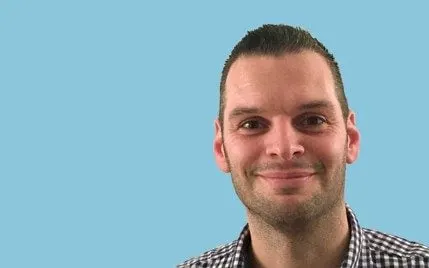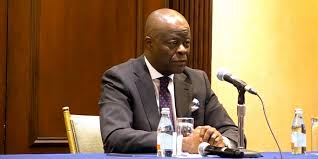Copyright yahoo

Pressure from trans activists led to the ousting of the leader of one of Britain’s biggest therapy groups, he has claimed. Dr Christian Buckland, the former chairman of the UK Council of Psychotherapy (UKCP), had raised concerns that treatment for gender-questioning children was unsafe. He claims to have been sent death threats by independent activists including a hand-written “rest in peace” sign as part of an intimidation campaign. Dr Buckland said he was trying to protect gender-questioning children from policies that would encourage them to be trans and go on to receive life-altering drugs and surgery. He is one of four former leaders from Britain’s biggest therapy institutions blowing the whistle on the profession’s failure to protect children with gender identity issues. The row ignited when Dr Buckland, 47, withdrew the UKCP’s support for a ban on conversion therapy – the practice of attempting to persuade trans or gay people that they are not trans or gay. This came after children with gender dysphoria were included in the proposed restrictions. The UKCP was one of around 30 organisations including the NHS that had signed a Memorandum of Understanding on the issue, which had initially focused on adults. ‘Your time will come’ As a result of the withdrawal, Dr Buckland said he faced a backlash, which quickly became personal and culminated with him receiving a sign with the letters “RIP” delivered to his house, as well as a series of abusive phone calls, messages and emails. One email sent to the UKCP included the phrases: “Your time will come” and “transphobic Nazi c***”. Dr Buckland said that “the UKCP office and I received vile and threatening communications for trying to ensure children’s safety was prioritised”. He also said he “felt abused by people both inside and outside of the UKCP” and was then “prevented from speaking about serious governance concerns or the abuse and death threats received”. Martin Pollecoff, who was the UKCP chairman for six years, told the Telegraph he had only discovered he was a signatory on a revised memorandum including children two years after he had left the organisation, despite never having agreed to it. He said Dr Buckland had shared with him “draft minutes” from the “one board meeting in six years” he did not chair, which was where the UKCP agreed to the new memorandum wording and adopted the new position. He says he has since told the UKCP chief executive “to tear it up” because it’s “fraudulent”. “I’ve spoken to the current chair and she’s like, ‘we’re investigating’ [how it had happened], but that’s it,” he said, adding that he had not agreed with changes to the memorandum because it went against the clinical advice he was given by child experts at the time. The concerns raised by Dr Buckland and Mr Pollecoff have been echoed across the profession, with former leaders at Britain’s other two biggest membership bodies for therapists also telling The Telegraph about the risk of “significant harm” that the profession now poses to children, with members quitting the organisations in protest. The crux of the split is around how children who are confused about their gender or believe it does not match their sex should be treated. A ban on conversion therapy in the way the group now advocates could legally prohibit “explorative therapy” which looks into the source of gender issues in children. ‘Exploration of gender is essential’ But this “affirmative” approach contradicts recommendations from the Cass Review into care for under-18s with gender dysphoria, which said “exploration of these issues is essential”. This is because these children often have other conditions such as autism or other mental health conditions that should be addressed. The review, led by paediatrician Baroness Hilary Cass, warned against the affirming approach the controversial Tavistock clinic used as it sent children on an irreversible path to drugs and surgery. Prof Nigel MacLennan, the former president-elect of the British Psychological Society, said the groups’ memorandum was “encouraging 100 per cent of children [with gender dysphoria] to go down the medical gender reassignment route”. “If an adult has the capacity to consent to having a worse physical outcome for no mental health gain, that is their choice,” he said. “But long ago, societies all across the globe decided that children do not have such capacity, in every human activity. “The risk to children is of irreparable harm,” he added. “It is like telling a paranoid person: ‘Yes, they are out to get you’.” Prof MacLennan was forced to stand down before taking up the position of president because of “bullying” allegations, which he claims was in response to whistleblowing. He said he had become “extremely concerned about the lack of effective management and governance” and “a highly toxic environment” at BPS, which included issues relating to gender. His case was initially dismissed by an employment tribunal because he – like other charity trustees – held a voluntary role and had no legal protection. But he later won an appeal for his case to be heard again. Prof MacLennan said others had not spoken out because “trustees are vulnerable to life-ruining retaliation at the hands of the wrongdoers, and those wrongdoers have complete legal impunity”. Meanwhile, Natalie Bailey, who was chair of the British Association of Counselling and Psychotherapy (BACP) for six years until August, said since leaving that “many members have contacted me about the gender issue and how it is placing children at risk of serious harm”. She was ousted in August, alongside her deputy, after an internal audit found “expenses claims exceeded what is permitted”. Ms Bailey claims she was targeted for whistleblowing about concerns she had uncovered, but was instead “treated as the source of the difficulty”. “When I raised concerns about procedural failures, exclusion from decision-making, and the handling of audit and legal processes, my contributions were dismissed and I was cut out of key conversations,” she said. The BACP supports the memorandum on conversion therapy and also agreed to a policy that pushed for affirmative care in children and ignored the findings of the Cass Review, she said, in what she called a “clear example of governance failure”. Ms Bailey said this “was introduced without balanced debate, with a major position effectively decided before it ever reached the board”. “Trustees were expected to endorse it rather than scrutinise it,” she said. “When the board asked for balance, clarity, and investment in research consistent with the Cass Review, we were told this was not within our remit.” She added: “In my view, BACP has not meaningfully engaged with the Cass Review’s recommendations, partly because key information was not shared with the board at the time, despite best efforts to raise these concerns.” The three groups are responsible for accrediting and setting the standards for more than 120,000 therapists in Britain. Those working in the NHS are required to be accredited, while patients using private therapy are encouraged to use the professional bodies’ directories to find qualified and accredited therapists who follow their guidance. More than 5,500 children are waiting to be seen by the NHS’s children gender hubs, of which six will be open by next year, replacing the Tavistock clinic, with waiting times currently upwards of two years on average. Private gender clinics, including those offering therapy as well as methods to access drugs, fill the void in the meantime. ‘Putting children’s needs before ideology’ Dr Buckland said the therapy bodies’ policies “reflect the ideological viewpoints of certain activists within these organisations rather than practitioners”. “I fear that it is currently almost impossible for parents to know if their child will see a psychotherapist, psychologist or counsellor who will put their child’s individual needs first over personal and ideological beliefs,” he said. The therapist also hit out at “bullying tactics” he claims are used to silence people, such as those who have “raised safeguarding concerns regarding gender ideology are often instantly labelled as ‘transphobic’”. He said others then either resign or remain silent, which has “meant that many senior positions are then freed up, only to be taken by people who, in my opinion, are activists first and psychological practitioners second”. “The whole experience of trying to fulfil my legal duties as chair of a psychological professional body and to protect children from harm was deeply traumatic,” he said. “I can understand why people choose to not speak out on specific topics as the impact of bullying can be overwhelming and unbearable, however when it comes to child safety I believe there is no excuse for remaining silent.” As former trustees of the not-for-profit bodies, all were unpaid volunteers and so have historically had no legal protection for raising concerns despite being legally obliged to hold the organisations to account. A UKCP spokesman said one of the reasons it withdrew from the memorandum “included the complexities around how it applied to work with children”. “Our position is clear: conversion practices are harmful and must never be used, regardless of a client’s age,” he said, adding that they were developing new gender-related guidance. The spokesman said they had since reviewed their “decision-making processes”, and that they took “reports of harassment or threats extremely seriously, provide support to anyone affected and would always encourage anyone affected to contact the police”. A BPS spokesman said it “firmly opposes conversion therapy”. “It is unethical and potentially harmful. We promote evidence-based and ethical practices that respect human diversity.” He added that Dr MacLennan’s “expulsion was a result of several allegations of bullying which came to light during his time as BPS president-elect”, but that with a tribunal outcome pending it was “inappropriate to comment further”. A BACP spokesman said: “All our work is underpinned by the vital need to ensure the provision of safe and ethical therapy, that protects the public from harm, and our commitment to equality, diversity and inclusion. “We stand by the MoU on conversion therapy. We’re fundamentally opposed to any misuse of therapy to try to change a person’s sexual orientation or gender identity. Conversion practises are harmful and unethical. “We acknowledge there are differences of opinion on the best approach to working with children and young people who are experiencing gender incongruence or exploring their gender in some way. “Natalie Bailey was removed as chair and as a member of our board after an independent forensic audit revealed instances of remuneration and expenses claims exceeding what was permitted, undermining expectations of ethical, accountable, and responsible leadership. We followed due process and took legal and governance guidance throughout.”



